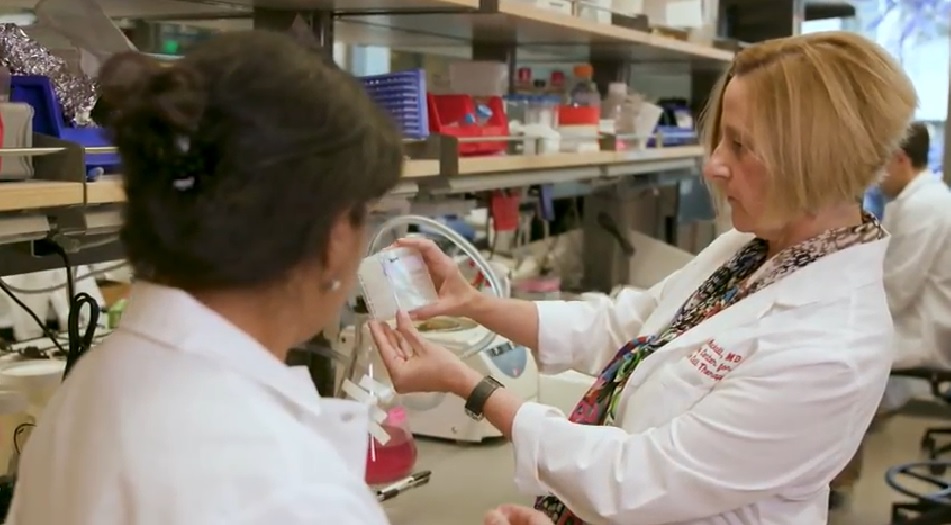Crystal Mackall, MD, a Stanford professor of pediatric oncology/hematology, recently sat down with me to explain why she's so optimistic about the future of CAR-T therapy for treating cancer.
"We're taking a patient's own immune system and endowing it with super powers to be able to recognize and kill a tumor," she explained.
With CAR-T therapy, a patient's own T cells (a type of immune system cell) are genetically modified in the laboratory so that they grow surface receptors that bind like grappling hooks to specific proteins on the patient's cancer cells. The receptors are called chimeric antigen receptors, or CARs. Large numbers of these engineered CAR-T cells are grown in the laboratory then infused back into the patient, so that they can find and attack the cancer cells.
This appears to be a more powerful and more targeted approach to killing cancer cells than chemotherapy, which kills some fast-growing cancer cells but often kill healthy cells, too.
In a recent clinical trial led by Mackall and Terry Fry, MD, a pediatric hematologist and oncologist at the National Cancer Institute, a significant percentage of children and young adults with treatment-resistant B-cell leukemia achieved remission through a new CAR-T cell gene therapy that destroys cancer cells with the CD22 molecule on its surface.
This study provided the first evidence that CAR-T cells targeting a second surface protein (CD19 was the first) could also induce powerful anti-cancer effects. This CAR was also able to treat patients who had relapsed after earlier treatments with CD19-CAR T cells. The study opens the door to the use of multiple CAR targets to fight treatment-resistance leukemia and possibly other types of cancers.
"I'm really optimistic that we're going to have an important impact in the clinic," Mackall said.
Video by Stanford Children's Health




